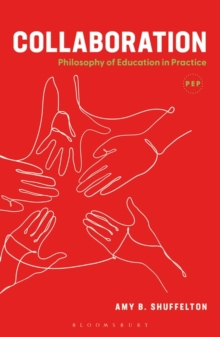Description
| Product ID: | 9781350302730 |
| Product Form: | Paperback / softback |
| Country of Manufacture: | GB |
| Series: | Philosophy of Education in Practice |
| Title: | Collaboration |
| Subtitle: | Philosophy of Education in Practice |
| Authors: | Author: Amy B. Shuffelton |
| Page Count: | 112 |
| Subjects: | Philosophy and theory of education, Philosophy & theory of education, Moral and social purpose of education, Moral & social purpose of education |
| Description: | Select Guide Rating Collaboration is widely celebrated as an ability schools should teach children to practice. Yet collaboration has a darker side, as its use to refer to those complicit with Nazi occupiers and with colonial oppressors of many kinds suggests. In effect, “collaboration” is a contranym, a word that can mean something or its opposite. To collaborate can mean to work with one’s friends and colleagues for the common good. It can also mean to sell out one’s friends and colleagues for the sake of personal gain. What can schools do to encourage the first and discourage the second? The loyalty and commitment to shared ends that collaboration implies may seem a positive good only insofar as those loyalties and ends are also good – but how to judge? This book asks: to whom should one be loyal and what are the limits of loyalty? What responsibility do collaborators bear for the outcomes of their joint projects? Should I make those friends and those responsibilities my own? These are questions children learn to answer in schools, through the formal and informal education that happens there. Amy Shuffelton explores those questions in the context of children’s lives in schools, including examples from films, literature, and children’s own accounts of moral dilemmas they face around questions of friendship, authority, and their own developing agency. She argues that rather than collaboration being a simple, good practice, considerable care is needed to ensure it serves individuals and their communities well. Collaboration is widely celebrated as an ability schools should teach children to practice. Yet collaboration has a darker side, as its use to refer to those complicit with Nazi occupiers and with colonial oppressors of many kinds suggests. In effect, “collaboration†is a contranym, a word that can mean something or its opposite. To collaborate can mean to work with one’s friends and colleagues for the common good. It can also mean to sell out one’s friends and colleagues for the sake of personal gain. What can schools do to encourage the first and discourage the second? The loyalty and commitment to shared ends that collaboration implies may seem a positive good only insofar as those loyalties and ends are also good – but how to judge? This book asks: to whom should one be loyal and what are the limits of loyalty? What responsibility do collaborators bear for the outcomes of their joint projects? Should I make those friends and those responsibilities my own? These are questions children learn to answer in schools, through the formal and informal education that happens there. Amy Shuffelton explores those questions in the context of children’s lives in schools, including examples from films, literature, and children’s own accounts of moral dilemmas they face around questions of friendship, authority, and their own developing agency. She argues that rather than collaboration being a simple, good practice, considerable care is needed to ensure it serves individuals and their communities well. |
| Imprint Name: | Bloomsbury Academic |
| Publisher Name: | Bloomsbury Publishing PLC |
| Country of Publication: | GB |
| Publishing Date: | 2023-12-14 |


